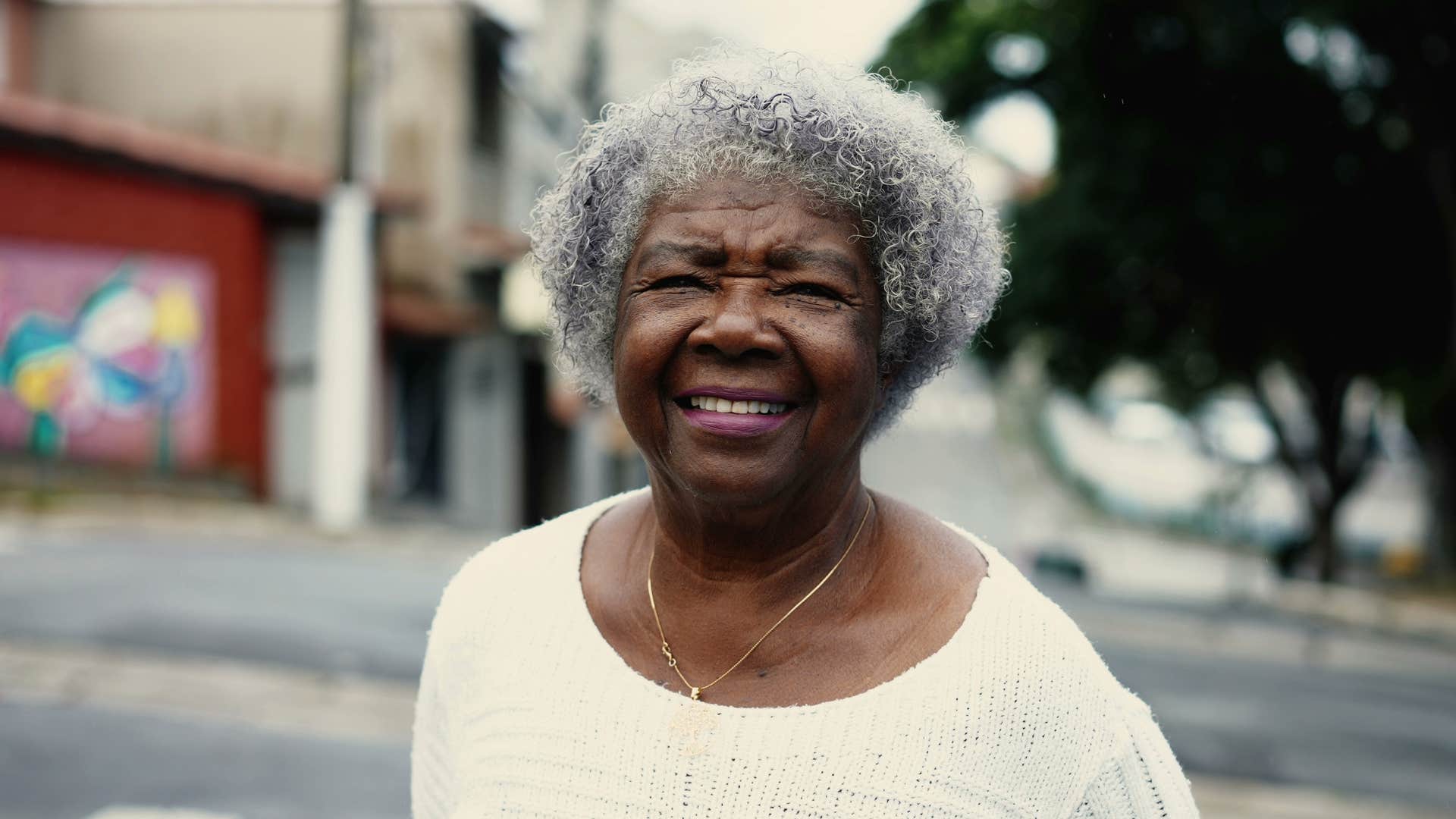11 Classy Ways High-Value Women Respond To People Who Trigger Them
Be in control of your emotions, no matter who is trying to push your buttons.
 Fizkes | Shutterstock.com
Fizkes | Shutterstock.com Dealing with intense emotions can be difficult, but most remedies revolve around open communication, at least according to marriage therapist Jennifer Litner, who argues there are several different paths emotionally triggered people can follow to cope and navigate through uncomfortable situations and interactions. While they can be overwhelming, urging us to resort back to unhealthy behaviors, there are specific classy ways high-value women respond to people who emotionally trigger them.
Of course, these women are self-classified as “high value,” not just because they care for themselves but also because they cultivate healthy relationships and advocate for their emotional health. Even in the face of abusive or toxic people, they aren’t shy about making space for their needs.
Here are 11 classy ways high-value women respond to people who emotionally trigger them:
1.‘I’m not looking for solutions, just to be heard and understood right now’
 shurkin_son | Shutterstock.com
shurkin_son | Shutterstock.com
According to psychotherapist Ilene Strauss Cohen, unprompted advice can elicit feelings of shame and judgment in situations where someone is just looking to vent or share an experience.
When these classy women are just sharing their emotions and vulnerabilities, the last thing they need is to have them feel dismissed or minimized by “a solution.”
While unprompted advice is often presented with no malicious or narcissistic intent, it’s best to wait for someone to ask, “What should I do?” or “Do you have any advice?” before jumping into a self-assured savior mindset and presenting solutions.
2.They set clear boundaries.
 Muse Studio | Shutterstock.com
Muse Studio | Shutterstock.com
Therapist Susan J. Elliott argues that boundaries help protect one's emotional well-being and the longevity and health of one's relationships. When one sets clear boundaries with everyone in one's life, the unhealthy people will slowly be weeded out, empowering one to continue growing a supportive inner circle.
When you’re faced with an emotionally triggering person that you don’t know well or don’t have a relationship with, you can still rely on those personal boundaries you’ve crafted — essentially saying, “No, I won’t tolerate this kind of behavior. I’m taking a step back or removing myself from this situation.”
3.‘This conversation isn’t productive for me’
 Dikushin Dmitry | Shutterstock.com
Dikushin Dmitry | Shutterstock.com
Many women, informed by societal pressures to "keep the peace” and always consider others, don’t feel empowered to separate themselves from uncomfortable situations or people—even at their own expense. It’s not just about the vague distinction between “high-value” women and other classifications; all women feel this pressure.
Despite that toxic societal norm and learned behavior, these women can pry themselves away from what’s expected of them in conversations and interactions—prioritizing themselves, no matter how uncomfortable. At the very least, they make space to reflect on how they could better put themselves first, make space for their emotions, and heal after an emotionally triggering experience.
4.They remove themselves from the conversation.
 People Images Yuri A | Shutterstock.com
People Images Yuri A | Shutterstock.com
You’re not being rude for ending a conversation. You’re not being selfish by taking the space you need to protect your energy. That’s precisely why phrases like “I need space” or “Let’s pause this” are a few of the classy ways high-value women respond to emotionally triggering people — they separate themselves.
It’s not always going to be easy. You might experience pushback or judgment for leaving an unproductive or unhealthy conversation. Still, if you hope to build a better relationship with someone, they’ll learn to respect that much-needed space.
5.They cut off toxic relationships.
 Bricolage | Shutterstock.com
Bricolage | Shutterstock.com
Of course, if someone doesn’t respect your need for space, your distance from unhealthy conversations, and the emotional boundaries you’ve created and re-asserted, high-value women make the difficult decision to cut them out of their lives.
Like physician and mental health writer Kristen Fuller writes, making an informed decision to cut off a relationship and then truly sticking to that decision is the hallmark of a healthy person. They’ll express their emotions, work to evolve, and leave anyone who’s unproductive or toxic behind.
6.They cope with mindfulness practices.
 dekazigzag | Shutterstock.com
dekazigzag | Shutterstock.com
While mindfulness practices like journaling and meditation seem overused and overstated for many, they’ve been proven to transform the lives and emotional well-being of most people who make them into a regular practice.
The University of Rochester Medical Center argues that journaling helps you control the symptoms of an emotionally triggering person or experience and improve your mood.
You do not only vent, getting all your niche worries and anxieties out of your head but journaling also helps reduce stress and create solutions for problems in your life. You can look at your life more objectively, especially when looking back through previous entries and experiences.
7.‘I need time to sit with my emotions’
 People Images Yuri A | Shutterstock.com
People Images Yuri A | Shutterstock.com
Conflicts and disagreements erupt quickly in various couples, and our emotions heighten even more rapidly. Sometimes, it’s best to create space after an emotionally triggering event like this, giving everyone time to unpack their feelings and figure out how to move forward.
Feeling overwhelmed by complex emotions and generally unsure isn’t the mindset you need to heal, resolve an issue, or move forward healthily. Even if you sit with your feelings in the presence of your partner, friend, or family member, as Dr. Jennifer McEwan from Mount Vernon Family Therapy Associates suggests, you need to hold the space to unpack how you’re feeling truly.
8.They reflect on their triggers.
 ViDI Studio | Shutterstock.com
ViDI Studio | Shutterstock.com
It can be difficult to respond directly to a person who emotionally triggers you. Still, high-value women take the time to understand why someone’s behavior was triggering so they have a foundation for future interactions.
This reflection can look different for everyone — some journal, others rely on support from friends, and some sit with their emotions for some time to learn.
Therapist John Kim suggests that people ask themselves, “Why did this trigger me?” or “What past experiences or beliefs might be influencing my reaction?” to get to the root of emotional triggers. You can figure out the best way to heal from these triggers and investigate the underlying causes and patterns behind them.
9.They respond by focusing on their own feelings.
 Josep Suria | Shutterstock.com
Josep Suria | Shutterstock.com
According to therapist David Richo, many people struggle to separate themselves from people who emotionally trigger them because they’re projecting their emotional struggles onto others. With unresolved trauma or unmet emotional needs, they manifest triggers in interactions with others — making them impossible to avoid.
High-value women take the time to investigate the root of these triggers, responding to people who might inflict intense internal emotions with their own emotions rather than projecting anger and frustration on others. They understand that making their experience completely about other people removes their power to control their responses and isolates them from healthy healing, coping mechanisms, and, of course, accountability.
10.‘I’m struggling to respond in a healthy way’
 SynthEx | Shutterstock.com
SynthEx | Shutterstock.com
Even if you’re able to accept a tendency to project, acknowledge your emotions, and separate yourself from the intensity of an emotionally triggering person, sometimes we all need to excuse ourselves from conversations. It might not be the other person’s “fault” or a symptom of your relationship, but rather a need to sit alone and reflect.
Not everyone can openly share their emotions in the heat of the moment, and that’s okay.
High-value women prioritize reflecting and returning to a conversation when feeling more grounded and struggling with empathy or compassion.
11.They utilize an ‘echo response’.
 Prostock-studio | Shutterstock.com
Prostock-studio | Shutterstock.com
By simply restating someone’s hurtful words back to them, high-value women can flip the script on a toxic conversation and spark much-needed introspection in a blatantly malicious person. By saying their triggers out loud and explaining how they’re feeling, they may help clear up misunderstandings and set boundaries in the heat of the moment.
According to keynote speaker Dave Kerpen, this concept of “mirroring” helps respond to emotionally triggering people and perfect the art of active listening. You can engage other people and make them feel heard when you repeat and reflect on what they’re saying—sometimes, it leads to an open, healing conversation, and other times, it might remind you why intentional space is important.
Zayda Slabbekoorn is a news and entertainment writer at YourTango who focuses on health and wellness, social policy, and human interest stories.

